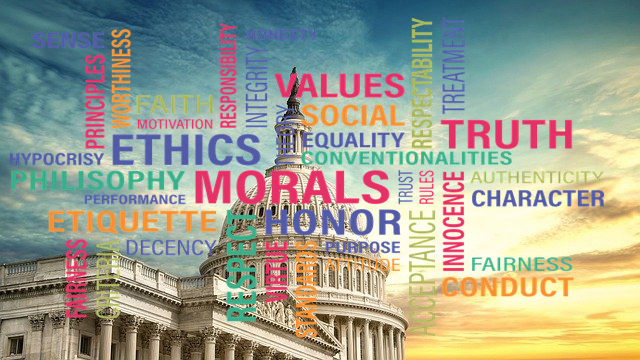 Let’s face it. If someone told us that God spoke to them, most of us would roll our eyes and take a step back. In our age of science, logic, and doubt, we don’t easily believe there is a God who speaks to us. Blame Hollywood, if you will. We have been conditioned to expect the voice of God to be some thundering bass, probably accompanied by flashes of lightning and rolling thunder.
Let’s face it. If someone told us that God spoke to them, most of us would roll our eyes and take a step back. In our age of science, logic, and doubt, we don’t easily believe there is a God who speaks to us. Blame Hollywood, if you will. We have been conditioned to expect the voice of God to be some thundering bass, probably accompanied by flashes of lightning and rolling thunder.
Surely the God who created the universe, the God of unimaginable power and majesty, doesn’t speak in whispers.
Or does He?
Like so many aspects of our efforts to understand the spiritual realm, we are handicapped by our own human restrictions. If we are to hear from God, we expect to hear God’s message in the form of a sound, a voice that we can detect with our ears. We expect Him to speak in a language that we understand. We expect a clear directive or warning.
In our blindness, we do not see the possibility or even the probability that God’s voice may take another form. We are so accustomed to communicating via our five senses, that we struggle to accept that there may be other forms of communication.
Perhaps God’s voice is a whisper of conscience, perhaps it is a moment of inspiration. God’s voice might come as an awareness or an insight. Perhaps His voice is a pang of guilt or regret.
Could it be that God speaks to each of us in the form appropriate for the message? Could it be that we have already heard the voice of God speaking through a friend or neighbor, or through the message in a Sunday sermon?
Finally, you might ask, “why me?” Why would God choose to communicate with you? The answer is twofold. If we research the stories in the Bible, we might find that God chose ordinary people to use to deliver His messages. Those people may have ultimately become influential in their time, but they didn’t necessarily start out that way. So, why not you?
Secondly, maybe He communicates with each of us, all the time, but we aren’t tuned in. The static of our existence interferes. And one of the strongest signals that blocks our ability to receive His messages is the belief that God couldn’t possibly engage with all of humanity – there are just too many of us. Somehow, while we might believe that God created the billions of stars and planets in the universe, we can’t believe that He could keep track of the billions of souls on the earth. Just as the limits of our five senses restricts what we can comprehend, our ability to visualize large numbers makes it difficult for us to imagine any entity being able to manage such vast numbers of interactions.
Finally, is it truly the voice of God? No matter what form it takes, the test is to verify against the documented history of God’s nature. If the message is cloaked in love and caring, that speaks for itself.
Our challenge is to silence the static of our existence and focus on that small, whispering voice that is the true voice of God.
In 1859, Charles Darwin’s book, “On the Origin of Species” was published, igniting a debate that continues to this day. The principle concept that caused the uproar was the idea that evolution by natural selection was the mechanism that determined the emergence of new life forms over long periods of time as newer generations changed and adapted to better survive the environment.
In other words – survival of the fittest.
While today’s science-oriented society is more open to the idea that mankind gradually came into being from the evolution of more primitive life forms, the culture of the era of Darwin’s publication more firmly embraced the Biblical description of creation.
And so it began.
More than 150 years later, our science has pretty much accepted the idea that evolution is reality. The study of fossil remains and other traces has established that the history of the earth and the life forms on it is much more complex than the Genisis description. In some instances, science has been able to identify the evolutionary history of a particular species, verifying the legitimacy of the theory of evolution.
Chances are that most of us alive today have been exposed to both the science and the Biblical versions of the story of our existence. Chances are, as well, that we gave little thought to the conflict as science gained the upper hand. We live in an era of astounding scientific development, an era when science seems capable of providing answers to our most perplexing questions about our existence.
But one very critical element is missing from the science catalog of answers.
Science would now have us believe that in the earliest days of our planet’s existence, some random mix of chemicals gave rise to the simplest form of life, and that life form evolved, over eons of time, into more complex life. Eventually, humans emerged from the mix.
That missing element is the spark of life, the final piece of the puzzle that turned that random mix of chemicals into a life form that feeds and reproduces and evolves.
Even if we accept that evolution might simply be God’s tool for developing life on earth, it is that leap from chemicals to consciousness that seems insurmountable. A single-cell organism that functions merely to survive long enough for survival of the fittest to push it into the next stage of the evolutionary ladder is a far cry from a self-aware being that is capable of discovering its own origins.
Perhaps that spark of life that transformed that chemical mix into a life form was merely the first of many sparks. Perhaps it required periodic jolts from a Creator to turn those first living cells into a being that can journey to the stars in search of its origin.
Perhaps it is that spark that reveals the identity and existence of the Creator.
 The political turmoil in the year 2020 cast a glaring spotlight on the divisions within the Christian churches as much as it did on the landscape of warring political parties. As might be expected, each faction accused the other of distorting the Christian message. As also might be expected, the extreme factions on both sides seemed to support their side with extreme interpretations.
The political turmoil in the year 2020 cast a glaring spotlight on the divisions within the Christian churches as much as it did on the landscape of warring political parties. As might be expected, each faction accused the other of distorting the Christian message. As also might be expected, the extreme factions on both sides seemed to support their side with extreme interpretations.
So, which is the truest Christian message? It is a question made more complex by the realization that so much of our political and legal processes is based on the moral and ethical principles that arose from Judeo-Christian roots.
It might help to recognize that faith and politics are not new contestants in the struggle for the devotion of humanity. The Bible is filled, cover-to-cover, with political and spiritual conflict. From the very first books of the Old Testament through the life and death of Jesus, politics is a foundational element to most of the Bible. The people of God were continually fleeing, fighting or enslaved by various political entities. And there were traitors and abusers of power on all sides.
It is only in the revelations of the New Testament that the dust begins to settle and the will of God begins to become obvious through the acts and words of Jesus of Nazareth. And that message is revealed as love.
Surely, there are passages in the Bible that recognize the authority of the political powers. Some even suggest that those in power are placed there as part of God’s plan. After all, it was the political environment of the times that brought Joseph and Mary to Bethlehem, and it was the political climate of the time that brought Jesus to the cross.
But we need to remember that we are ill-equipt to comprehend what God may wish to accomplish. Perhaps God allows or creates a scenario that teaches His followers a vital lesson by allowing some suffering or pain. Perhaps what we see as vile or evil is meant to provide us with a reminder or wake-up call – a reminder to re-examine our understanding of His message. Perhaps He periodically provides us with a test of our faith so that we might strengthen our resolve.
Perhaps the best way to judge our church is to reflect on how closely our church adheres to the guiding principles and examples that Jesus gave us. Simply put, does our church practice those ideals, or simply recite them?
Compassion, respect, caring for the poor, the elderly, and the disadvantaged. Welcoming the traveler and feeding the starving. Forgiveness. Loving one another.
It’s all about showing love and gratitude for life.
If your church isn’t practicing true Christian principles, perhaps it has lost its way, and perhaps it is your task to help it get back on track by openly rejecting abuse and misuse of God’s Holy message. Even in church, your vote counts.
 It is a common expression – to take a leap of faith. Basically, it means to take action based on the belief that success is probable – not guaranteed, but probable. Despite the religious connotations, that leap of faith is probably the greatest roadblock to embracing Christianity.
It is a common expression – to take a leap of faith. Basically, it means to take action based on the belief that success is probable – not guaranteed, but probable. Despite the religious connotations, that leap of faith is probably the greatest roadblock to embracing Christianity.
Viewed through our lens of logic, we are forced to acknowledge the reality of our handicap.
When we decide to take that leap of faith it usually doesn’t involve anything of serious consequence. We might decide to pass that gas station, taking that leap of faith that we have enough fuel to get to the next station, but if we are wrong, the most we might expect is an inconvenience. We might leave home without an umbrella, fairly confident that it won’t rain. If we are wrong, big deal, we might get a little wet.
Now, let’s contrast those leaps of faith with actions based on knowledge and experience. Whereas faith is a belief and acceptance of something unseen or never experienced, first-hand knowledge involves an awareness of a projected outcome based on the memory of a personal experience or observation.
In other words – “been there, done that, and I can do it again.”
Faith is entirely different. True faith involves believing in something outside of personal experience, yet with the same confidence as something solidified in memory as having been accomplished.
Frankly, it is something not easily acquired. As human beings, we have built an immense mental catalog of what is and isn’t possible, and future beliefs are built upon the foundation of that catalog. A belief in something that has no precedent is a struggle for any of us, particularly in those who have built that catalog based on logic.
For most of us, that leap of faith, embracing the foundational concepts of Christianity, is both our greatest challenge and our greatest need. Perhaps this is why the text of Matthew 19:14 is an underappreciated gem in the Bible. “Suffer little children, and forbid them not, to come unto me: for of such is the kingdom of Heaven.”
Young children have not yet learned to doubt, have not yet learned to embrace logic, and so they are quick to believe. In their innocence, children believe without the filters that adults apply. And it is in that purity of faith that children set the example of that which we need to seek.
Perhaps to fully embrace Christianity, to finally take that leap of faith, we need to believe with the innocence and acceptance of children.
“… and a little child shall lead them.”
 It’s an expression that most of us have heard. Many of us have said it – “if there’s anything I can do…” It’s commonly heard at funerals when a mourner wants to offer some comfort to someone who has lost a loved one. And, frankly, the recipient of that well-intentioned offer, seldom acts on that overture.
It’s an expression that most of us have heard. Many of us have said it – “if there’s anything I can do…” It’s commonly heard at funerals when a mourner wants to offer some comfort to someone who has lost a loved one. And, frankly, the recipient of that well-intentioned offer, seldom acts on that overture.
What most of us fail to recognize is that such an offer of support is one of the closest acts to God’s heart that we are capable of. That act of unselfish giving is approaching the core of God’s being. It is an act of love. It is an act unburdened by self-serving strings attached.
In the moment that we hold someone’s hand and make that offer, we have momentarily embraced our common feelings of pain and distress. In that moment, to some degree, we share their pain, and in doing so, we experience and project a type of love that is pure and free of conditions.
Most of us have experienced romantic love, but that type of love is burdened by self-interest. While we may experience a great affection for our romantic partner, that love is inevitably linked to our own feelings of joy. It is not so much an unselfish giving as it is a reciprocal exchange in which both parties benefit by experiencing pleasure in the process of giving to the other.
The act of offering to shoulder some of the pain that another person experiences is different. It is a purer form of love in the sense that the offer to share that pain has no benefit for those that make the offer.
“So we have come to know and to believe the love that God has for us. God is love, and whoever abides in love abides in God, and God abides in him.” – 1 John 4:16
Although many will deny the reality of their testimony, there are multiple reports from people who claim they have experienced a brief encounter beyond death and returned to life. One of the most common descriptions these people report is a feeling of overwhelming love, unconditional love. They report that the feeling of love is the very essence of God. God is love.
For those of us who find ourselves consoling a mourner, it is important to realize that our offer – “if there is anything I can do…” is more than an offer. It is that full expression of love. By making that love-filled offer, we have already given that mourner the greatest gift we can give.
 Most of us will never understand the science of our existence. We will occasionally read an article or see a television presentation on some new development or discovery, but the deeper it goes into the details, the less likely we will truly understand it.
Most of us will never understand the science of our existence. We will occasionally read an article or see a television presentation on some new development or discovery, but the deeper it goes into the details, the less likely we will truly understand it.
When we speak of energy, we think of the forces that give us heat for our homes, electricity that runs our computers and television sets, and propulsion from burning gasoline that runs our vehicles. But energy is so much more than those familiar examples.
In its simplest terms, all that we observe, all that we are, and all that we experience is a variety of energy.
We know, from the most basic science, that all matter is composed of various combinations of atoms. Water, for instance, is a simple combination of two atoms of hydrogen with one atom of oxygen. Both these gases are capable of existing in a pure form, yet something causes them to join together to create a liquid. That “something” is a form of energy. It is the mysterious dance of atoms that goes into any form of matter, from the simple formula for water to complex compounds that we create in the laboratory.
We can fall back on the basic explanation of positive and negative forces interacting at the atomic level, but one question remains unanswered. Why do the components of different atoms interact? What forces cause basic elements to combine to create a new substance?
The same questions can be applied to other forces in our existence.
What exactly is gravity? What is the force that causes our sun to exert a pull on the planets?
How does the light from a distant star travel unimpeded across billions of miles of open space to interact with the retina of a human eye?
How does a simple thought in the human mind combine with another thought to create something entirely new?
Once again, we are faced with questions so complex, that we are incapable of comprehending the answers that are equally complex.
Perhaps the energy that defines our existence is best defined as the will of God. And that is as close as we can hope to come to an answer.
 There’s no question that mankind has struggled to understand the mysteries of the universe for centuries, if not longer. Modern science has developed tools and techniques that continue to strip away the layers of those mysteries in an ever-increasing library of knowledge. But, like the layers of an onion, every layer revealed exposes a new layer and a new mystery.
There’s no question that mankind has struggled to understand the mysteries of the universe for centuries, if not longer. Modern science has developed tools and techniques that continue to strip away the layers of those mysteries in an ever-increasing library of knowledge. But, like the layers of an onion, every layer revealed exposes a new layer and a new mystery.
Just as science continues to advance, the mysteries seem to multiply.
Science struggles to calculate the age of the universe, despite the fact that the standards applied are man-made. What is a year but the time our earth takes to make one full circle around our sun? So, we are applying a standard that didn’t exist when the universe was formed. For that matter, science cannot even agree on what time is, except in human terms. A year, a day, an hour, are all human-defined terms for a particular observed cycle. Perhaps time is a tool of God that allows for a sequence of events to happen without interference with each other.
We might also consider that, with an eternity to work with, God can use His tool of time to allow His other tools to process gradually. While, in human terms, we wonder at the concept of millions of years for evolution or erosion to occur, on God’s calendar, it may only be a tick of His clock.
Science is also hard at work trying to unravel the mysteries of the structure of matter. Once again, as we peel away another layer of the onion of matter, we find new layers that defy understanding. While the atom may have once been considered the basic foundation of all matter, science has since determined that even microscopic atoms are composed of even smaller elements, and those elements are composed of even smaller building blocks.
Science understands the workings of a magnetic field, but not why it exists. Science understands the power of the force of gravity, but not why it exists. Science knows there are frequencies of light we cannot see, and sounds we cannot hear, but not why.
Science postulates that there are dimensions of existence that we cannot detect, but not why.
It may be that God has a myriad of interacting tools that are beyond our reach, and more importantly, beyond our understanding. It may be that the biggest roadblock to our full understanding is that we have no language to describe those tools, and no image to visualize. Imagine trying to explain the workings of your cell phone to a jellyfish.
Perhaps we need to accept the truth that the works and tools of God are forever beyond our comprehension. If we could unlock God’s toolbox, chances are we wouldn’t be capable of understanding what we beheld. The complexities and interactions of all the elements of our existence and the universe we inhabit is clear proof of intelligent design, and an intelligence beyond our comprehension.
 The Christian community seems to be divided. Probably each of us claiming to be a Christian has had to make the decision as to which denomination is the “right” church for us. Even if we were raised in a particular denomination, the day was certain to come when we would be approached to consider another path.
The Christian community seems to be divided. Probably each of us claiming to be a Christian has had to make the decision as to which denomination is the “right” church for us. Even if we were raised in a particular denomination, the day was certain to come when we would be approached to consider another path.
And to be certain, each denomination has a reason why it is the “right” choice.
If we are to stay true to our dedication to using logic to address our questions about faith, we must take a step back from the emotional attachment we might have to our current or childhood beliefs, and acknowledge some facts.
While they may recognize their fellow churches, each seems to have built their church on a foundation of a particular segment or interpretation of the Bible. Each has zeroed in on the one thing that proves their brand is the right one.
Once we apply the logic filter to this concept, we will recognize that it is the human element, the judgment of a particularly influential person or group that has created the identity of that particular denomination. In other words, it is clearly a matter of human interpretation.
Even the Bible itself is the result of human interpretation of the various texts that were examined and debated over the course of hundreds of years. There are many more texts that were considered by various scholars and rejected, a debate that has endured since the earliest days of compiling what we know as the Bible. It is these disputes over what is sacred text and what is not that has formed some of the divisions in Christianity.
So, how then do we decide which church is right/
In truth, the debatable distinctions between different denominations is not as important as the core message. As long as each denomination adheres to the core message of Christianity, the variances in ceremony may be inconsequential.
Perhaps, an all-knowing God would recognize that different personalities of His human creation would need slightly different paths toward the ultimate truth. Perhaps that God would allow those variations to accommodate the free will that He built into the human soul.
 We write songs about it. We hold a loved one close for a slow dance at that wedding reception. It fuels our concern for the welfare of our parents or our children. We make movies about it. We talk about the power of love and how it makes the world go round. But, perhaps we underestimate the true power of love and how it rules our very existence.
We write songs about it. We hold a loved one close for a slow dance at that wedding reception. It fuels our concern for the welfare of our parents or our children. We make movies about it. We talk about the power of love and how it makes the world go round. But, perhaps we underestimate the true power of love and how it rules our very existence.
If we research the numerous tales of people who claim to have died and returned to life, most of those tales involve that person temporarily slipping into what we call “the afterlife.” Many describe a visit to a realm where brilliant white light summons them and they see colors that they never knew existed. Many report encounters with friends or relatives who had passed earlier. The details of these incidents vary from person to person, but there is one element that seems to be universal.
That universal element is the sensation of total and unconditional love. Many of those who have passed over and returned speak of being overwhelmed by the feeling of peace, and feeling loved beyond measure.
So, what does this have to do with our efforts to apply logic to a quest to embrace faith?
We might begin with debating the validity of these tales of visits to the afterlife. We have already considered the fact that so many of these tales have descriptions that are similar if not identical. In particular, the description of colors unknown in life and brilliant white light that would seem to be blinding if viewed with human eyes. But, the occasional revelation of knowledge that the person having the experience should not have, seals the deal. There have been multiple stories of children who passed over and returned from death with comments or descriptions of grandparents they had never met in life, or speaking of meeting siblings who were stillborn or who had died before the birth of the child who now claimed to have experienced the meeting.
Once again, these encounters speak of love, and the evidence of these encounters clearly demonstrates that there is a dimension or realm of existence beyond the moment when physical death occurs.
It appears that love is the power that continues to be the unbreakable bond between the living and those who have passed over. Likewise, love appears to be the force that helps those who pass experience the feeling of being home where they belong.
Finally, the messages in the Bible clearly identify the power of love.
1John 4:7-8
“Beloved, let us love one another, for love is from God, and whoever loves has been born of God and knows God. Anyone who does not love does not know God, because God is love.”

